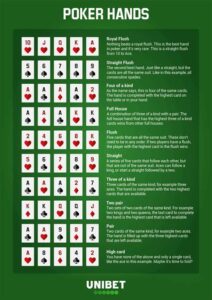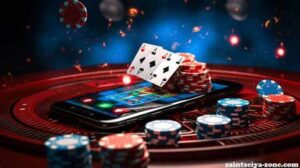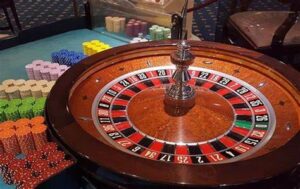
Unlock the Secrets to Boosting Your Gambling Wins by Understanding the Crucial Role of Game Choice. Dive into Our Insights on Why the Right Selection Is Key to Gambling Success.
The Psychology of Choosing the Right Game for Gambling Success
- Understanding Your Own Gambling Goals and Preferences
- The Psychological Impact of Game Choice on Success
- How Different Games Match Different Personality Types
- The Role of Skill Vs. Luck in Game Selection
- Managing Emotional Responses for Better Gambling Decisions
- Learning from Losses: the Key to Gambling Wisdom
Understanding Your Own Gambling Goals and Preferences
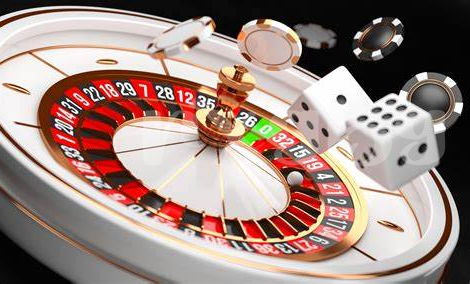
Embarking on the journey of gambling requires a unique mixture of introspection and strategy. It starts with a deep dive into one’s preferences, assessing whether the thrill of the spin in a pokie game, the strategic depth of blackjack, or the unpredictable nature of the dice roll in craps is what lights up your excitement. This initial self-analysis is critical; knowing if you’re in it for the long haul or seeking a quick adrenaline rush can significantly dictate which games might suit you best. Ever noticed how some players seem as calm as a Pharm Tech dispensing meds, while others are all about the high stakes? That’s because they’ve aligned their game choice with their personal goals and entertainment thresholds.
| Game Type | Suitable For |
|---|---|
| Slots/Pokies | Those seeking quick fun with minimal strategy |
| Table Games (e.g., Blackjack, Poker) | Players looking for strategy and skill involvement |
| Lottery and Bingo | Individuals leaning towards games of pure chance |
Choosing the right game also means taking stock of how much you value the skill versus luck dichotomy. Some games offer a clear path to leverage skills and strategies for increasing one’s odds of success. In contrast, others are purely the domain of chance, where the roll of the dice or the draw of the cards determines your fate. Understanding this balance is akin to a Pharm Tech comprehending the magic mouthwash formula – it’s about knowing the components well enough to predict the outcome reliably. This knowledge empowers one to manage expectations and potentially steer clear of games that may not align with their risk tolerance or the thrill they seek.
Moreover, an honest self-appraisal helps in managing one’s bankroll effectively. It’s not just about how much you’re willing to wager but also understanding the emotional rollercoaster that comes with wins and losses. Identifying games that provide the right level of excitement without leading to regrettable decisions is crucial. Whether it’s the slow burn of a tournament poker session or the instant gratification of hitting a jackpot on the slots, aligning these experiences with your emotional resilience will enhance your enjoyment and success in gambling. In essence, knowing thine self is the first bet one should make, ensuring that each decision thereafter is not left entirely to chance, but is a measured step towards achieving what every gambler seeks – satisfaction.
The Psychological Impact of Game Choice on Success
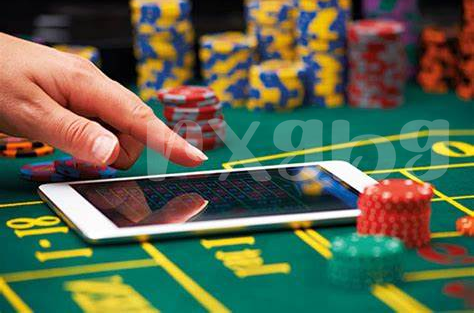
Embarking on the journey of gambling calls for more than just luck; it necessitates an understanding of the importance of game selection in gambling success. The thrill of the gamble isn’t merely in the risk itself but in strategically choosing a game that resonates with one’s personal inclinations and strengths. For some, the immediate rush of slots, with their bright lights and clattering coins, aligns perfectly with those seeking instant gratification. On the flip side, the methodical nature of card games like poker or blackjack appeals to those with a penchant for strategy and patience, demanding not just a good ‘Poker face’ but a solid understanding of the game’s mechanics.
Delving into various games, one quickly realizes the psychological undercurrents driving their preferences. The selection process, whether conscious or not, mirrors one’s tolerance for risk and their reaction to win or loss scenarios. For the analytical mind, games requiring a degree of skill and strategic play might offer a greater sense of control and thus, a more fulfilling experience. The allure of mastering the game and overcoming the odds through skill can be particularly potent. Conversely, games of pure chance, offering a level playing ground, might attract those enamoured by the equality of opportunity and the sheer unpredictability.
The distinction between skill-based and luck-based games isn’t just academic; it has a profound impact on one’s gambling journey. Acknowledging this, gamblers can tailor their approach, focusing on games that not only play to their strengths but also managing how they react emotionally to the ups and downs inherent in gambling. This self-awareness is crucial in maintaining discipline, a quality that separates the casual gambler from the successful ones.
Ultimately, the psychological effects of game selection cannot be understated. They extend beyond the surface-level excitement of a bet placed and resonate deep with our innate desires and fears. By aligning one’s choice of game with their personal traits and mastering the emotional rollercoaster that gambling often is, individuals set the stage for not just transient wins, but sustained success and enjoyment in the gambling realm. Through this carefully navigated path, the gamble becomes not just a test of luck, but a reflection of oneself – a journey every bit as rewarding as the destination.
How Different Games Match Different Personality Types
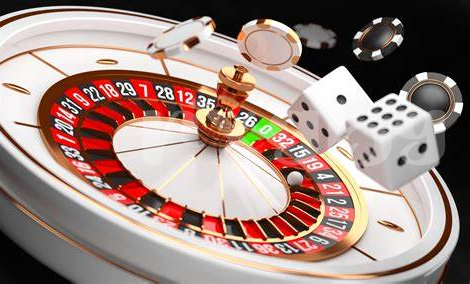
In the neon-lit jungle of gambling, where the roll of a dice can echo through the lives of many, the importance of game selection in gambling success cannot be overstated. It turns out that games, much like the flashy lights of Vegas, attract different personas. Take, for instance, the thrill-seekers and adrenaline junkies, who might find their hearts racing faster at the craps table or the high-stakes poker games. These environments, where the pressure is high and the outcomes are quick, echo their high-octane lives. On the flip side, the more contemplative and strategy-oriented individuals might lean towards Blackjack or poker, where a combination of skill, strategy, and a touch of luck can tip the scales in their favor. Here, the joy comes from outsmarting the opponent and making calculated moves that feel akin to a well-played game of chess.
The significance of aligning one’s gambling pursuits with their personality isn’t just about enjoyment; it’s crucial for making sound decisions under pressure. For those who prefer a steady, predictable pace, slot machines or roulette offer a more solitary experience, where the rhythm of play allows for a more measured, introspective approach. Yet, the choice of game can also reflect on one’s risk tolerance. High rollers, or those chasing the Pharm Party-like rush of a big win, may gravitate towards games with higher volatility and the potential for massive payouts. This self-awareness in game selection is emblematic of a deeper understanding of one’s own gambling motivations and the inherent emotional stakes involved.
Understanding the ebb and flow of games and their appeal to various personality types emphasizes the crucial aspect of choice in the realm of gambling. Whether one is pushing tin in the fast-paced cacophony of a dice game or strategizing in the quiet tension of a card room, choosing the right game can be akin to selecting the right weapon in an arsenal – it should complement one’s natural strengths and playstyle. In doing so, gamblers can not only maximize their chances of success but also ensure a more fulfilling and engaging experience at the tables or machines. This marriage between personality and playstyle underscores a timeless truth in gambling: knowing oneself is the first bet one must place, and arguably, the most important.
The Role of Skill Vs. Luck in Game Selection
Selecting the right gambling game is a delicate balance between skill and luck, significantly influencing your chances of success. For some, games of skill offer a compelling challenge, where practiced strategies and knowledge can tilt the odds in their favor. Poker and blackjack aficionados, for example, often spend years honing their craft, investing in the belief that expertise and experience can outmaneuver chance. This path appeals to those who enjoy control over their gambling outcome, aligning with personalities that relish mastery and competetion.
On the flip side, games of chance such as slot machines or roulette attract a different kind of player. Here, the allure lies in the unpredictability, the sheer excitement of not knowing. For many, the reliance on luck makes these games more about the experience than the outcome, a thrilling rollercoaster ride 🎰. The importantce of game selection in gambling success cannot be overstated: while luck-based games can offer quicker, out-of-the-blue wins, skill-based games provide an opportunity for those who wish to leverage their knowledge for potential gain.
However, the dichotomy of skill versus luck doesn’t just influence game selection; it also plays a crucial role in how we manage our emotional responses to winning and losing. Understanding this can help gamblers make more informed decisions, choosing games not just based on preference, but also on how well they can handle the inevitable ups and downs. It’s about knowing your own psyche🧠, recognising whether the instant adrenaline rush of a ‘jackpot’ or the calculated satisfaction of a well-played hand is more your speed.
Lastly, the journey of a gambler is one of continuous learning and adaptation. Whether it’s a skillful bluff in poker or relying on lady luck in the roulette wheel, the road to success is paved with both wins and losses. Each game, whether dictated by skill or luck, offers its own set of lessons. And, as one becomes more adept at navigating these waters, the choice between skill-based or luck-based games becomes not just a reflection of one’s personality, but a strategic decision towards achieving gambling wisdom🎓. Hence, the importanc eof game selection in gambling success underscores a broader strategy that encompasses understanding oneself, one’s preferences, and ultimately, one’s goals in the gambling world.
Managing Emotional Responses for Better Gambling Decisions
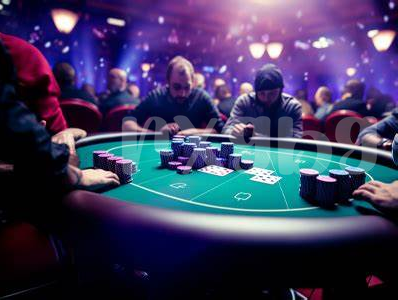
In the whirlwind world of gambling, your success can heavily depend on how well you manage your emotions and steering clear of the temptation to chase losses. It’s crucial to approach gambling with a strategy that includes recognizing when to take a step back and evaluate your decisions without emotion clouding your judgement. Think of it as needing a ‘cooling off’ period, much like allowing a fine whisky to breathe, ensuring that every decision is sipped slowly, not gulped in desperation or frustration. This strategic pause allows you to avoid the pitfalls of making hasty, emotionally driven decisions that could lead to a ‘hangover’ of regret. By maintaining a level head, akin to a seasoned Pharm Tech meticulously ensuring the accuracy of each prescription filled, you safeguard your bankroll and increase your chances of making decisions that are rational rather than reactionary.
Table: Emotional Management Strategies for Gamblers
| Strategy | Description |
|————————————|———————————————————————————————————————————————————————————-|
| Recognize Emotional Triggers | Identify what emotions (e.g., excitement, frustration) trigger impulsive betting and work on strategies to manage these feelings before they lead to regrettable decisions. |
| Set Clear Boundaries | Establish limits on how much time and money you are willing to invest in gambling activities. |
| Take Breaks | Regularly stepping away from gambling to reassess your emotional state can prevent making decisions based on emotions such as chasing losses or gambling out of boredom. |
| Seek Support | Building a support network or seeking professional advice can provide perspective and strategies for managing emotions related to gambling. |
| Focus on Rational Decision-Making | Emphasize making decisions based on logic and information rather than feelings or hunches, utilising strategies like bankroll managment to keep you grounded. |
Incorporating these strategies into your gambling routine not only enhances your enjoyment of the game but also amplifies your potential for success. By equating the importance of game selection in gambling success with the meticulous attention to detail required in pharmaceutical practices, you set the stage for informed, calm, and rationale decision-making. Whether you’re choosing between the flashing lights of slot machines or the calculated pace of a poker game, understanding your emotional responses to these environments is key. Just as a Pharm Tech must adapt to the ever-changing demands of the pharmacy, so too must a gambler adapt to the dynamic nature of gambling, ensuring that each choice made is not a product of emotional turbulence but of a considered, strategic approach.
Learning from Losses: the Key to Gambling Wisdom
In the unpredictable world of gambling, each loss brings a treasure trove of insights, if one chooses to dig deep enough. Recognizing the value in these moments requires a shift in perspective, seeing losses not just as setbacks, but as critical learning opportunities. 🧐 It’s about analyzing what went awry and adjusting strategies for future engagements. This practice embodies the essence of ‘Pharm Land’, where every outcome, be it a win or loss, contributes to a richer understanding of the game’s dynamics. Embracing this mindset is akin to crafting a ‘cocktail’ of experiences, where each ingredient – every game played and every decision made – serves to refine one’s approach and enhance their acumen in the gambling domain.
Moreover, the journey towards gambling wisdom is marked by the development of an invaluable skill set: resilience and adaptability. When a punter experiences the ‘sticker shock’ of an unexpected loss, it’s an invitation to revisit the ‘script’ they’ve been following and to innovate. 🎲✨ Such experiences teach the gambler to manage their emotions, remain level-headed in the face of disappointment, and, most importantly, to persist. It’s a process reminiscent of ‘titration’, where the dosage of efforts and strategies is adjusted based on the outcomes experienced. And just like in a ‘comp’, the key to mastery lies not in avoiding losses, but in learning to approach each game with a blend of knowledge, strategy, and emotional intelligence. The real victory, then, is in the wisdom gained through this journey, making every setback a stepping stone towards ultimate gambling success.
